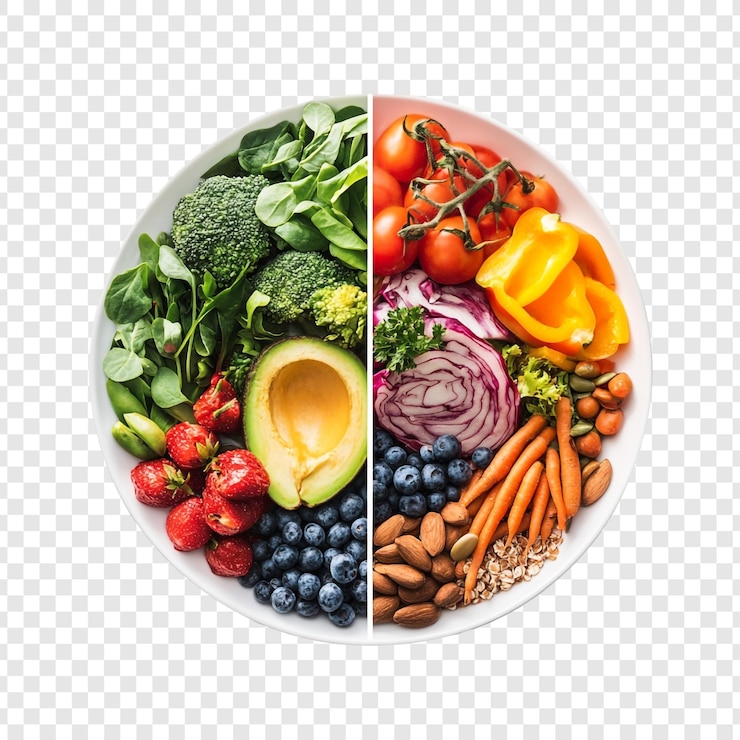
Taking care of your nutrition is one of the most important steps toward living a healthier and more balanced life. If you’re looking to improve health and well-being, here’s a guide to balanced nutrition with a focus on the benefits and implementation of a low-fat diet plan.
Why Balanced Nutrition Matters
A balanced diet is essential to help your body function at its best. It provides the nutrients required to maintain energy, support various bodily systems, and lead a vibrant, fulfilling life. Instead of relying on trendy diets or calorie counting alone, adopting a holistic approach that includes the right nutrients in proper proportion is vital. A low-fat diet is often a cornerstone of this process, offering numerous health benefits.
The Role of a Low-Fat Diet in Balanced Nutrition
Incorporating a low-fat diet into your routine can contribute to better weight management, improved heart health, and overall well-being. By focusing on nutrient-dense, low-fat food options, you’re nourishing your body in a way that supports a healthier lifestyle.
The Core Components of Balanced Nutrition
1. Macronutrients:
– Proteins: These are essential for muscle repair, immune support, and overall maintenance of the body. Include a mix of lean meats, legumes, and plant-based proteins in your diet.
– Carbohydrates: Complex carbs found in whole grains, fruits, and vegetables are excellent sources of sustained energy for daily tasks.
– Healthy Fats: Incorporate healthy fats like avocados, nuts, and olive oil in moderation. They are crucial for brain function, hormone production, and absorbing essential vitamins.
2. Micronutrients:
– Vitamins: Diverse fruits and vegetables provide the vitamins necessary for immune health, skin repair, and many other processes.
– Minerals: Include foods rich in calcium, iron, and potassium, such as dairy products, leafy greens, and bananas, for strong bones, proper oxygen transport, and fluid balance.
– Water: Staying hydrated is just as important as eating well. Drinking about 3.7 liters of water daily for men and 2.7 liters for women supports digestion, nutrient absorption, and temperature control.
Planning a Balanced Meal
– Breakfast: Start your day with whole grains, proteins, and fruits to fuel your body and set a positive tone for the rest of the day.
– Lunch: Choose a colorful plate filled with lean proteins, whole grains, and an array of vegetables for a nutrient-packed midday meal.
– Dinner: Opt for lighter portions in the evening, combining lean proteins, vegetables, and a small amount of complex carbs to promote good digestion and restful sleep.
Tips for Real-World Nutritional Choices
– Snacking Wisely: Select wholesome snacks like nuts or Greek yogurt with fruit for sustained energy and nutrition.
– Eating Out: Dining out doesn’t have to derail your nutrition goals. Look for meals with grilled proteins, fresh vegetables, or salads, and be mindful of portion sizes.
Building Long-Term Habits
– Consistency is Key: Focus on making small, sustainable changes to your eating habits rather than aiming for perfection. This consistency will help you achieve lasting results.
– Mindful Eating: Practice paying attention to your hunger cues, savoring each bite, and truly enjoying your meals. This approach can help you build a healthier relationship with food.
Key Takeaways for Balanced Nutrition
1. A low-fat diet is an effective foundation for maintaining heart health, managing weight, and improving overall wellness.
2. Balancing macronutrients—proteins, carbs, and healthy fats—ensures your body functions optimally and stays energized throughout the day.
3. Micronutrients, obtained from a variety of fruits, vegetables, and other whole foods, are essential for overall health and physiological support.
4. Staying hydrated supports digestion, nutrient transport, and overall bodily functions.
5. Planning balanced meals, including a nutritious breakfast, colorful lunch, and light dinner, promotes good digestion and better quality sleep.
6. Wholesome snacks and smart dining-out guidelines ensure you stick to your nutrition goals in everyday life.
7. Consistency and mindful habits are the foundation of long-term success in maintaining a healthy lifestyle.
Moving Toward a Healthier Future
Creating a balanced nutrition plan is a journey that should align with your personal preferences, goals, and lifestyle. By adopting a low-fat diet and incorporating the principles of balanced eating, you’re setting yourself up for a happier, healthier future. Remember, small changes today can lead to significant transformations tomorrow. Take the first step, care for your body, and enjoy the path to improved well-being!